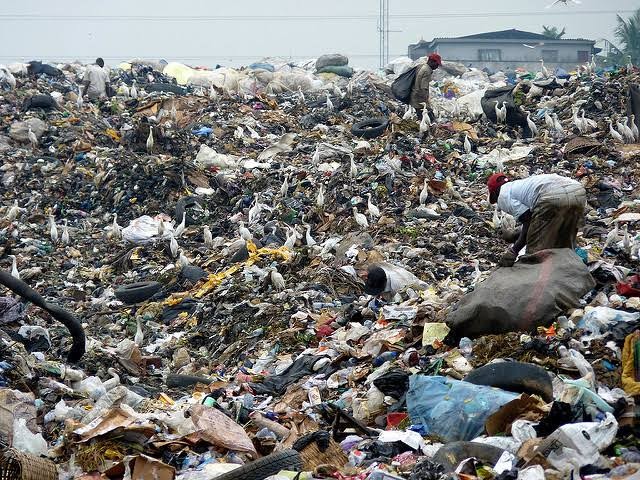Residents across Lagos have expressed deep concern over the growing heaps of refuse littering major roads, warning that the situation could trigger a public health crisis if not urgently addressed.
From Iyana-Ipaja to Abule Egba, Oshodi, Iyana-Iba, Agege, and parts of Lagos Island, piles of decaying waste have become a common sight, emitting foul odours and obstructing movement. Many residents say the development has persisted for months without visible intervention from the relevant waste management authorities.
The situation, according to observations, has made several areas almost impassable, while the stench from decomposing waste has forced some residents to keep their windows shut. Traders and commuters are also forced to conduct their daily activities amid offensive odours and swarming flies.
Across communities, complaints point to irregular waste collection, poor supervision, and what many describe as neglect by waste management operators. Some residents allege that despite regular payments to Private Sector Participants (PSP) operators, refuse is often left uncollected for weeks, spilling onto the roads and into residential areas.
In markets like Oshodi, traders are forced to sell beside heaps of garbage due to inadequate waste evacuation trucks. Others attribute the indiscriminate dumping to high waste collection charges, which discourage compliance among low-income residents.
Read Also: BBC Faces Major Scandal Over Trump Documentary as Top Executives Step Down
Ikosi-Ejinrin LCDA Felicitates Oba Momson Owolabi Saheed on 2025 Agbowa Day Celebration
A visit to several areas including Ekoro Road in Abule Egba, Iyana-Ipaja, and Ajao Estate revealed refuse piles emitting strong odours and attracting insects. In some cases, heaps of garbage reappeared just days after clearance, raising concerns about enforcement and sustainability.
Responding to the development, the Lagos State Ministry of Environment and Water Resources blamed the persistence of roadside dumping on residents’ reluctance to pay for waste disposal services.
The ministry’s spokesperson, Kunle Adeshina, explained that while the state has over 100 operational waste collection trucks, widespread default in payment continues to undermine efficient service delivery.
“The main problem is that some Lagos residents don’t want to pay for the refuse they generate. PSP operators are businessmen who bought their trucks and employ staff. If people don’t pay, debts pile up and services suffer,” he said.
Adeshina noted that many households owe up to six months in arrears, making it difficult for operators to maintain vehicles and pay staff. He also revealed that some residents deliberately dump refuse on medians and public spaces at night, relying on the Lagos Waste Management Authority (LAWMA) to clear it.
“If LAWMA clears a spot by 4 a.m., by 6 a.m. the place is filled up again,” he lamented, adding that the government is intensifying enforcement through community waste policing and sanctions against offenders.
Environmental health experts have since warned that the continued accumulation of refuse poses serious risks, including potential outbreaks of cholera, dysentery, and other infectious diseases if immediate action is not taken.













